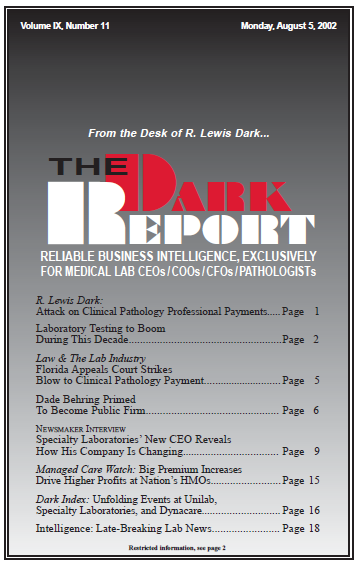RECENT WEEKS BROUGHT important developments to several public lab companies. Each development changes and alters the competitive marketplace for laboratory testing services. It was big news at Specialty Laboratories, Inc. when the troubled lab company signed a Plan of Correction (POC) with the Centers for Medicare and Medicaid Services (CMS), thus lifting sanctions that affected …
Unfolding Events at Unilab, Specialty Labs and Dynacare Read More »
To access this post, you must purchase The Dark Report.


